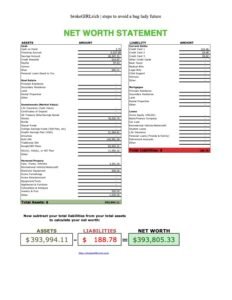For centuries, livestock farming has been a crucial part of human civilization. This practice, known as animal husbandry, entails breeding and raising animals for food, fiber, labor, and various other needs that support our daily lives. Although it may appear straightforward, livestock farming requires skill, science, and dedication from breeders to farmers. It plays a vital role in ensuring food security and bolstering rural economies around the globe. But what qualities are essential to be an effective livestock farmer?
Photo by Jim on Unsplash
Establishing a Strong Base through Livestock Selection
Not all livestock serves the same purpose; for instance, one would not attempt to milk a beef cow. A crucial part of animal husbandry is choosing the right breeds for specific purposes on a farm. Whether one seeks meat, milk, eggs, or wool production, different breeds have unique genetics and characteristics suited for particular tasks. For example, Angus cattle are well-known for their high-quality beef, while Holsteins dominate the dairy sector. In addition to breed selection, health and temperament should be equally important factors in decision-making. Farmers need to choose animals that not only produce well but are also disease-resistant and manageable.
Nourishing the Herd and Ensuring Their Well-Being
Have you heard the saying, “You are what you eat”? This adage holds true for livestock as well. High-quality nutrition is fundamental to a thriving farm. Livestock diets should be carefully crafted, blending grains, forage, and supplements to optimize growth, productivity, and health. For instance, dairy cows need specific combinations of proteins and minerals to produce high-quality milk, while sheep and goats flourish on pasture rich in roughage. Feeding animals goes beyond mere numbers; ethical farmers prioritize their herd’s welfare by providing adequate shelter, clean water, and sufficient space. Happy animals tend to be more productive, making it both a moral obligation and sound business practice to invest in their comfort.
The Influence of Technology in Contemporary Livestock Farming
Technology has revolutionized this sector in ways dreams and imaginations could not have envisaged. Automatic feeders, climate-controlled barns, and electronic identification tags have quickly become standard tools for farmers. Through applications and wearable sensors, farmers can monitor livestock health in real-time, identifying potential health issues before they escalate into costly problems. Advanced breeding strategies have also marked a new era. Methods like artificial insemination and genetic mapping have enabled farmers to lead agricultural innovation, optimizing herds for desired traits such as increased milk yield, enhanced fertility, or greater disease resistance. Livestock farmers are truly at the forefront of agricultural advancements.
Crucial Tools for Livestock Farming
The right tools are integral to successful livestock farming. From basic necessities like sturdy fencing and feeding troughs to sophisticated machinery such as automatic milking systems and portable cattle scales, having the appropriate equipment enhances both efficiency and animal welfare. Barns and shelters should be well-ventilated, with bedding materials to keep animals comfortable throughout the year. Likewise, automatic watering systems ensure that animals stay hydrated, while manure management tools maintain cleaner environments. Investing in quality equipment, such as those from Priefert for farm and ranch, boosts productivity and reduces labor costs while promoting overall animal health.
Final Thoughts
Livestock farming blends tradition with innovation, requiring hard work, knowledge, and an element of chance. Modern farmers merge time-honored practices with advanced technologies to provide resources, such as milk and wool, that we often take for granted. So, the next time you enjoy a glass of milk or put on a wool sweater, take a moment to remember the countless individuals behind its production who have committed their efforts and dedication to feeding and supporting humanity through livestock farming.







